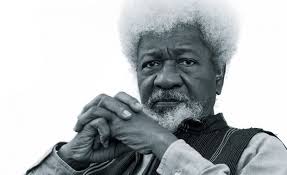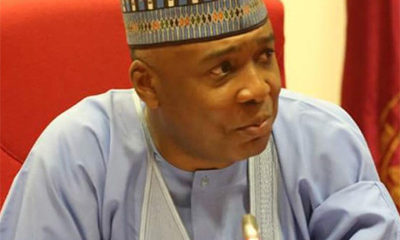Opinion
APC, PDP don’t deserve our votes – Soyinka

By Lukman Amusa
Nobel Laureate, Prof. Wole Soyinka, says the two leading political parties – the All Progressives Congress and the Peoples Democratic Party – do not deserve to return to power.
Soyinka said this today at an interactive session at Freedom Park in Lagos titled, ‘Citizen Forum 2019’.
The playwright had last month seemed to lean towards President Muhammadu Buhari when he faulted ex-President Olusegun Obasanjo’s support for former Vice-President Atiku Abubakar of the PDP.
Speaking on Thursday, however, he said, “It is time for a totally new direction, and when an alternative emerges, we will give the candidate our backing,” he said.
“For the avoidance of doubt, let me make my position quite clear because I don’t want any ambiguity; I, Wole Soyinka, will not be voting for either the two so-called contesting parties. I find both of them worthy of absolute rejection.
“For a number of reasons which I will not go into here, I’m not interested in a comparative assessment. My position is simply that it is time for a totally new direction. And obviously, I’m not the only one, as I’m speaking, there is a coalition having its meeting in Lagos from which they hope to produce a consensus candidate.
“There is another group meeting in Abuja, also at the end would send us their consensus candidate. Things have been going on quietly in the background to try and change the direction of this nation in a very positive way and to make the public understand that they do not have to be enslaved permanently to the old discredited order. It is my sole business in this election.
“I don’t believe in what is called negative vote which means, for me, throwing your vote in a wastebasket, I believe instead in a creative vote, not a protest vote, not a negative vote but a creative vote.
“And a creative vote means that the will to at least sow a seed through your vote that will germinate eventually. The pace of germination is beyond the control of everyone, but it is never too early to make a beginning. It has happened before in other societies. When a dark horse emerges from nowhere and trumps all the political juggernauts caterpillars and so on with their performers, worthless, their capacity for violence and treachery.”
He added that the reason they are yet to arrive at a consensus candidate was because the supposed genuine third force was hijacked.
Soyinka is believed to be one of the persons who prevailed on a former Minister of Education, Mrs. Oby Ezekwesili, to step down as the Presidential candidate of the Allied Congress Party of Nigeria.
Ezekwesili, a former Deputy Governor of the Central Bank of Nigeria, Dr. Kingsley Moghalu of the Young Progressives Party, Mr. Fela Durotoye of the Alliance for New Nigeria; and Sahara Reporters publisher, Omoyele Sowore of the African Action Congress are all believed to be working on a partnership ahead of next month’s elections.










